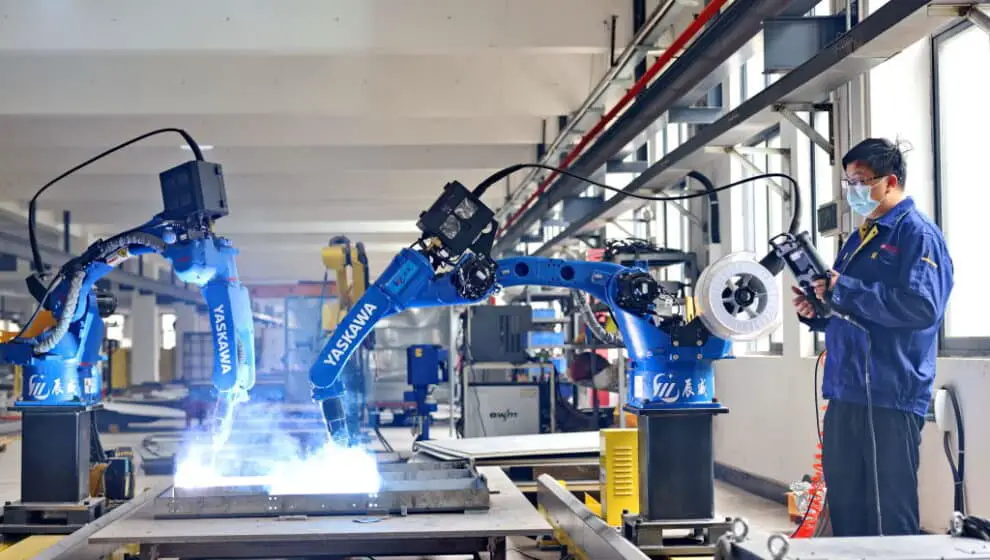After pandemic-related issues in China, manufacturers are looking for alternative locations to produce their products—and some are looking at the U.S.
Key Details
- China has long been the world’s factory, but a new push for “re-shoring” is encouraging manufacturers to move their facilities closer to their customers—and out of China.
- At the same time, China is slipping in prominence as a manufacturer, and the war between Russia and Ukraine continues to affect supply chains, CNBC reports.
- Domestic manufacturing, or at minimum multiple resource options, is one answer to concerns about losing access to supply chains.
- The U.S. has already promoted domestic manufacturing of electric vehicle components and semiconductor chips.
Why it’s news
The emphasis on “re-shoring,” or bringing manufacturing back to the U.S., has only grown. In several earnings calls during the most recent quarter, domestic manufacturing was frequently mentioned—talks about moving manufacturing were up 128%, CNBC reports.
How best to handle manufacturing concerns is more prominent in these discussions about how to address artificial intelligence in the workplace.
In a separate survey across multiple sectors, 78% of European executives plan to move manufacturing closer to their customers, and 70% of U.S. executives plan to do the same.
The apparel industry is particularly interested in restructuring its current model. With manufacturing overseas, retailers must try to predict fashion trends months before they can be available in stores. Sometimes, by the time clothes finally make it to retail locations, consumers have already moved on, CNBC reports.
Former PVH chief supply-chain officer Bill McRaith says the industry often over-orders and under stocks goods by 20% to 25%. McRaith suggests that re-shoring could be one answer to this persistent problem.
Other industries are also focusing on bolstering their domestic production. Already the U.S. is set to have a record number of manufacturing hires this year, CNBC reports. The influx is mostly driven by electrical equipment manufacturers making products like semiconductor chips.
The Inflation Reduction Act’s incentives to manufacture products like chips in the U.S. will likely increase American manufacturing jobs.
